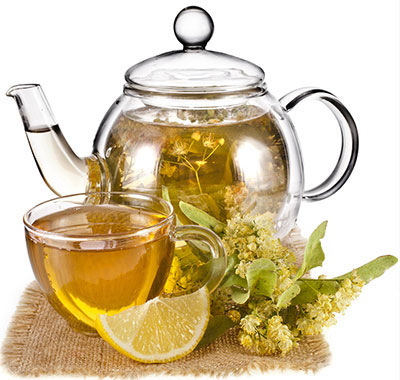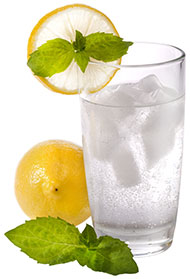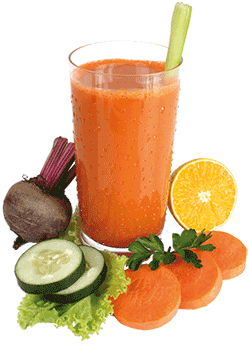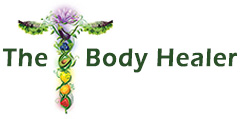Caffeine Alternatives
 There is nothing like the natural high that comes from being vibrantly healthy. But for millions worldwide, that high is not so natural. Whether it is from energy drinks, supplements, or drinking coffee, the artificial jolt to the central nervous system from a shot of caffeine is the most popular addiction of the western world.
There is nothing like the natural high that comes from being vibrantly healthy. But for millions worldwide, that high is not so natural. Whether it is from energy drinks, supplements, or drinking coffee, the artificial jolt to the central nervous system from a shot of caffeine is the most popular addiction of the western world.
Americans drink 400 million cups of coffee each day, making the US the world's largest coffee consumer. Whether taken as straight black coffee, or loaded with sugar, milk, or other ingredients such as imitation flavorings, it has become symbolic of the energized and dynamic American worker. It can also pack on weight, with specialty coffees containing as much as 400, 500, or even 600 calories for just one drink.
Millions of Americans claim they cannot function properly in the morning without their coffee fix. They are addicted to the mental alertness triggered by the caffeine hitting their central nervous system. A staff meeting first thing in the morning, or a business meeting, is often preempted by quickly downing that first cup to get us started.
If you feel you need caffeine on a daily basis
to get you through the day, then you have an addiction
Whether it is caffeine, alcohol, prescription stimulants, or refined foods, addictions are never self-serving when it comes to a healthy mind and body. If you think you cannot experience the same mental sharpness and energy level without caffeine, think again. That is just the addiction talking! When your body is flooded with life-giving nutrients from healthy, high vibrational foods, you experience a quantum leap in mind/body connection and achieve a level of vibrancy not possible when you are a slave to any addiction.
Ready to Quit the Caffeine?
If you are ready to quit that addiction to coffee, energy drinks, and other caffeinated foods and drinks, let's take a look at some natural, healthier alternatives that contain little to no caffeine content. Beginning to slowly but surely replace your caffeine intake with these natural sources can help tremendously in giving up a caffeine addiction, while reducing caffeine withdrawal symptoms.
Mineral Water
 From flat to sparkling, there is nothing more refreshing than a glass of cold mineral water with a dash of lemon or lime. It is called "mineral" water for just that reason - it contains minerals! These include calcium, magnesium, and other trace elements.
From flat to sparkling, there is nothing more refreshing than a glass of cold mineral water with a dash of lemon or lime. It is called "mineral" water for just that reason - it contains minerals! These include calcium, magnesium, and other trace elements.
There are many brands to choose from that are inexpensive. Some are plain, and others are flavored with lemon, lime, orange, or similar essences. Make sure the one(s) you select do not contain any sugar or artificial chemicals. The only ingredient should be water, and plain old lemon, lime, or other fruit.
Keep a filled water bottle handy and reach for it as a reminder to keep hydrated, or when you get those caffeine cravings. Keep a jug in the refrigerator filled with slices of fresh orange, lemon, and cucumber slices. Also keep some fresh mint handy and add a few leaves.
Fresh Fruit & Vegetable Juices
 There is nothing to compare with the shot of "liquid light" that hits the bloodstream when we drink a bottle of nutrient-packed freshly squeezed fruit or veggie juice. I call these juices liquid light because, in liquid form, they take only minutes for the body to digest while flooding us with life-giving energy.
There is nothing to compare with the shot of "liquid light" that hits the bloodstream when we drink a bottle of nutrient-packed freshly squeezed fruit or veggie juice. I call these juices liquid light because, in liquid form, they take only minutes for the body to digest while flooding us with life-giving energy.
Fresh, organic fruits and vegetables are considered "high vibrational" foods, meaning that they radiate the highest vibration of any other foods on the planet. This translates to increasing our life force energy, in turn increasing our ability to heal from disease.
A cup of coffee doesn't even come remotely close when compared to the power of freshly squeezed juices when it comes to our health and vitality.
Black, White, & Green Tea
Green, black, white, and oolong teas all come from the leaves of the same plant. The difference in flavor and caffeine content is due to when the leaves are harvested and how they are prepared:
Black Tea
Made from the dried leaves of the Camellia Senensis plant, the leaves of black tea are oxidized and heavily fermented before they are dried, creating a strong flavor. Black teas come in many varieties depending on their growing regions, e.g. Darjeeling or Ceylon. They contain about 50 mg/cup of caffeine compared to coffee, which has anywhere from 100-190 mg/cup. The strength of the caffeine depends on the quality of the tee and how long it has been brewed.
White Tea
The leaves of white tea are picked earlier in the season while the leaves are young and tiny white hairs cover the buds (hence the name "white tea"). They are not fermented and undergo minimal processing. White tea has a light, sweet taste and contains about 15 mg of caffeine/cup.
Green Tea
Popular in Japan, green tea has powerful antioxidant properties and has a grassy, earthy flavor. What makes green tea different is the way that it is processed. The leaves are steamed, rather than fermented. The steaming process is said to increase its health-giving properties. Green tea has been shown to reduce the risk of certain types of cancer and lower LDL (bad) cholesterol. Green tea has approx. 30 mg caffeine/cup.
Pero
Pero is a caffeine-free instant coffee substitute from Switzerland made from malted barley, chicory, and rye.
Dandy Blend
Made from dandelion, chicory, and sugar beet, this detoxifying dandelion drink is an herbal caffeine-free coffee substitute that is rich in mineral content.
Yerba Mate
A species of holly native to South America, yerba mate is prepared by steeping dried leaves in hot (but not boiling) water. Its flavor is earthy, grassy, and herbal. The mild stimulant properties in yerba mate come from the xanthines called theobromine(1) and theophylline which, although similar to caffeine, do not produce the negative and jittery side effects. The "mateine" in yerba mate is actually caffeine, but the caffeine content is much lower than in coffee.
Yerba mate also contains various antioxidants, vitamins, and the minerals potassium, magnesium, and manganese. It has been shown to restore insulin sensitivity in obese rats.
Teechino
A blend of roasted fruits, nuts, grains, and herbs make this a caffeine-free coffee alternative with a unique flavor. It can be used in a coffee machine and brewed similar to coffee, and has a similar aroma to coffee. Teechino is high in potassium content.
RELATED ARTICLES
- Stimulants & addictions
- Top 7 most commonly used stimulants
- Quit your addiction!
- The Dirty Dozen: What they are & why you should avoid them
- Soda, pop, & energy drinks
- The standard American diet: Fast-track to sickness
- Additives & chemicals in our food
- What are processed & refined foods
- Why stress is a silent killer
- Get off the diet merry-go-round
- Is your diet healthy? See how it stacks up
- Healthy food choices for children
- Healthy food choices for pets




 Learn all about food, vibration, and life force energy:
Learn all about food, vibration, and life force energy: